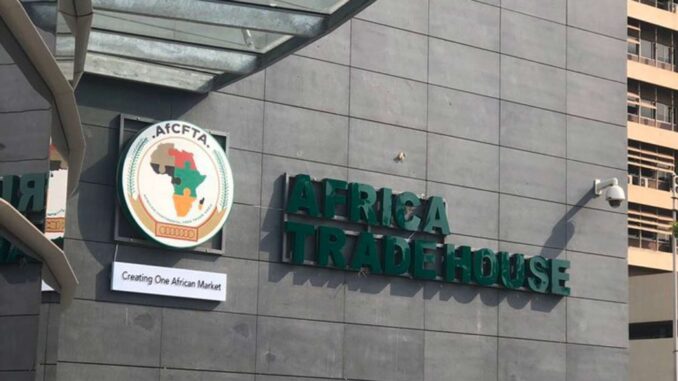
Much attention has been devoted to the launch of the African Continental Free Trade Area (AfCFTA) on January 1, 2021. As the CEO of the pan-African provider of industrial ecosystems, I am convinced about the gains that can be achieved by uniting a market of 1.2 billion people. I am not the only one with high expectations. For the past two years, experts have bandied about a lot of ambitious figures.
I may be optimistic, but I am no less realistic. The “political” launch of the AfCFTA is a positive starting point. Now, the real challenge is to ensure that its impact materialises at scale and in a timely manner. Unless we focus on three key areas, the AfCFTA is doomed to failure. The key to the success of the AfCFTA is industrialization. Countries need to focus on developing local industries to transform and export high-value products.
Raw cashew nuts, raw cotton or cocoa in West Africa, plywood and veneer in the Congo Basin’s; each sub-region has a competitive advantage that must be unlocked through industrialisation. The AfCFTA provides a tangible opportunity to do so but a few conditions ought to be met. First, the private sector must have a seat at the table. Second, we must prioritise investments in transport infrastructure. Last but not least, governments need to embrace new modes of financing.
If anything, the COVID-19 has reminded us of the importance of strong collaboration between governments and the private sector. Across Africa, a range of businesses, including ours, delivered swift initiatives to support governments’ response to the crisis.
Behind each of these initiatives, there is an efficient platform facilitating a partnership between decision-makers and business leaders. Some of these platforms have been decisive in re-establishing trust, overcoming inertia and designing customised solutions. The successful implementation of the AfCFTA will require a similar approach, whereby entrepreneurs, investors, and policymakers maintain a constant dialogue.
At the local and continental levels, dedicated platforms and channels of engagement must be developed, to allow the private sector to play an active role in the implementation of the AfCFTA. This entails contributing to forthcoming policy discussions, sharing best practices and co-designing pro-innovation regulations.
Intra-African trade is still muted by the lack of quality and affordable infrastructure, especially when it comes to road and railway networks. In 2019, intra-regional trade only represented 17 per cent of Africa’s exports, against 59per percent in Asia and 69per percent in Europe.
The question I ask is not whether we should build more but what do we need now. To answer it, we need to adopt a pragmatic approach, prioritising the development of critical transport infrastructure that has the potential to increase regional integration, facilitate mobility and strengthen markets’ competitiveness. With Africa’s rapid urbanisation and population growth, the stakes are high.
Financiers and donors must come together to launch an Africa Industrialisation Transformation fund of $100 billion to increase investments in industrialisation in Africa. This calls for alternative modes of financing, some of which have already demonstrated their resilience, such as infrastructure project bonds, user fees or public-private partnerships (PPPs). There are many examples of successful PPP projects across the continent, such as the Kigali Bulk Water project, or Gabon Special Economic Zone (GSEZ).
In Gabon, within the last ten years, GSEZ has contributed to the emergence of a competitive local value chain through a successful joint venture with the government. Gabon has since become the largest producer of veneer in Africa and the second largest exporter in the world in 2018…up from 26th exporter in the world. To raise the capital necessary to implement the AfCFTA, governments must embrace new, innovative modes of financing which give confidence to the private sector to invest.
In the words of chief of staff of the AfCFTA Secretariat, Silver Ojakol “Economic integration is not an event. It’s a process.” Building the world’s largest free trade area since the establishment of the World Trade Organization will not happen overnight. Most of it depends on what we do next, and where we focus our efforts.
Gagan Gupta is the Chief Executive Officer, Pan-African provider of industrial ecosystems, infrastructure and logistics solutions.
END

Be the first to comment